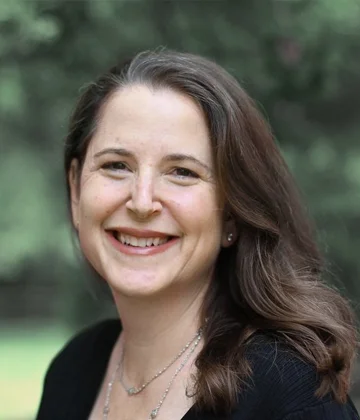Pyramid FUNctional Conference 2025: Shaping Tomorrow’s Success Today

Pyramid is excited to announce the annual Functional Conference will be hosted virtually by Pyramid Education Consultants on October 14, 2025! Whether you’re a professional, educator, or caregiver, this conference offers practical takeaways you can immediately apply to help learners thrive beyond the classroom.
We are honored to feature a keynote address from Andy Bondy, PhD and Lori Frost, MS, CCC-SLP, internationally respected leaders in autism education and the developers of PECS® (Picture Exchange Communication System®). Their insights will set the tone for a conference centered on building meaningful life skills that prepare autistic individuals for independence, fulfillment, and success beyond the age of 21—when school-based services typically end.
In addition to our keynote, we are proud to welcome a dynamic group of invited speakers—experts in transition planning, inclusive higher education, supported employment, and culturally responsive ABA—each bringing real-world strategies for individuals with varying support needs. The day will conclude with a panel discussion featuring all of our speakers.
Let’s come together to ensure that autistic individuals don’t just survive after school—they thrive!
Conference Learner Objectives:
- Identify functional skills that generalize across settings and last a lifetime
- Integrate cultural competence into goal development and family collaboration
- Apply evidence-based strategies for transition planning, employment readiness, and community inclusion
- Design interventions that prepare learners for independence beyond the classroom
Conference Details
Agenda: 9:00 AM – 4:00 PM ET
Registration Time: 8:45 AM to 9:00 AM
Conference Cost: $149.00
Presenters and Disclosures: Our presenter details can be found below in each talk description.
Accommodations: Pyramid Educational Consultants is committed to working with our customers to accommodate special needs. Please contact our office to request accommodations for trainings or other services via email: pyramiduk@pecs.com.
CEUs: 6.0 BACB CEUs; 6.0 IBA CEUs. Satisfactory completion of this course requires participants to be present for the duration of the course and to participate in all student responding activities (e.g. questions, role play, quizzes, and surveys). Partial credit will not be awarded. Credits from your state organization may be available, see our list of approved professional organizations here.
Keynote Address
30 Minutes
Presented by: Andy Bondy, PhD & Lori Frost, MS, CCC-SLP
The foundation of the Pyramid Approach to Education focuses on goals everyone would like to see for their children- get a job in the real world, live as independently as possible, and be happy! The path to achieve these outcomes starts with our first interactions with learners. While materials and settings will change over time, everyone must learn skills related to staying on task, completing activities, doing things at a reasonable pace, and using an array of communication and social skills. We will describe how some activities for very young children relate to activities as adults and why community-based activities are essential for everyone at all stages of an education.
Objectives
- Participants will describe two key skill areas (e.g., task completion, pacing, communication, and social interaction) that must be taught from early childhood through adulthood to support long-term success.
- Participants will explain the importance of community-based activities across educational stages and how early childhood experiences connect to real-world adult outcomes.
Presenter Bio
The creators of the Picture Exchange Communication System (PECS), Andy and Lori’s bios can be found on Our Team page.
Talk 1: Partnering with Parents: Building Trust and Engagement for Ages 2-12
60 Minutes
Presented by: Armando Bernal, MEd, BCBA
This presentation will focus on building strong, collaborative relationships with parents of children ages 2–12 receiving services. We’ll discuss how to incorporate family values, gain parent buy-in, and train caregivers to implement effective interventions through a neuro-affirming approach. Emphasis will be placed on the importance of parent input and early engagement following a diagnosis. This presentation will also highlight the importance of setting future-focused goals that foster greater autonomy and support independence.
Objectives
- Describe three strategies for building strong, trust-based relationships with parents of children ages 2–12 in the context of ABA.
- Identify at least three ways to incorporate parent values and cultural considerations into behavior intervention planning.
- Demonstrate how to introduce and train at least three evidence-based ABA interventions that parents can implement at home.
Presenter Bio
Armando Bernal is a neurodivergent board certified behavior analyst who supports patients between the ages of 2-25-years-old. In addition, Armando provides autistic consultation, parent and therapist consultation, speaking engagements for companies across the nation, and supervision and mentorship to other BCBAs and therapists. Armando has also participated in several collaborations with Vanderbilt University and the Suny Empire State University meant to further support self-advocacy and independence for individuals with autism.
Armando is also the founder of Autism International Consulting, PLLC, a self-advocacy-centered organization which provides in-home ABA, in-clinic ABA, and international consultation. They are also the distributor of the podcast, “A Different Path.” He hopes to spread awareness and acceptance of autism by interviewing and sharing the stories of other individuals with autism.
Talk 2: Improving Adult Outcomes in Autism: Behavior Analytic Approaches That Make a Difference
60 Minutes
Presented by: Peter Gerhardt, EdD and Shanna Bahry, PhD, BCBA-D
In 1968, Baer, Wolf, and Risley emphasized that effective teaching strategies—especially those based on behavior analysis—should result in strong, socially important, and generalizable outcomes which, in this case, should mean positive adult outcomes in ASD. Unfortunately, despite an emphasis on evidence-based, behavior analytic intervention in ASD, adult outcomes remain poor “for almost any outcome you choose.” (Roux et al., 2015). There may be many reasons for these ongoing difficulties, but it’s clear that we haven’t yet fully tapped into the potential of behavior-based approaches to improve adult outcomes. More positive outcomes should, however, be well within the reach of our behavior analytic technology.
This session will take a closer look at the current research on how behavior strategies can support a wide range of important adult skills for individuals with ASD. We’ll also explore topics like ethical decision-making, working with families of older individuals, understanding what’s socially meaningful to learners and their communities, and how to balance instructional choices with a careful look at potential risks and benefits.
Objectives
- Apply ethical decision-making and risk-benefit analysis to instructional planning, while considering the social relevance of goals for older learners with autism.
- Discuss three ways behavior analysts and educators need to change their behavior if better adult outcomes in ASD are to be realized.
- Discriminate between functional and applied skill acquisition programming
Presenter Bios
Dr. Gerhardt has more than 30 years experience utilizing the principles of Applied Behavior Analysis in support of individuals with autism spectrum disorders in educational, employment, residential and community-based settings. He is the Executive Director of the EPIC School located in Paramus, NJ. Dr. Gerhardt is the author or the coauthor of many articles and book chapters on the needs of adolescents and adults with ASDs and has presented nationally and internationally on this topic. Dr. Gerhardt is the founding chair of the Scientific Council for the Organization for Autism Research (OAR) and currently sits on numerous professional advisory boards including Behavior Analysis in Practice, the Cambridge Center for Behavioral Studies, the Association of Professional Behavior Analysts, and the Autism Society of America. He received his doctorate from Rutgers, the State University of New Jersey, Graduate School of Education.
Shanna Bahry is a board-certified, doctoral-level behavior analyst, and licensed behavior analyst in Massachusetts (LABA) and Rhode Island (LBA). She has been working with individuals with autism spectrum and related disorders for over 15 years, across a wide range of ages, abilities, and severity of challenging behavior, in a variety of settings. Dr. Bahry received her PhD in applied behavior analysis from Endicott College, under the advisement of Dr. Peter Gerhardt. Dr. Bahry and Dr. Gerhardt co-authored Make it Meaningful, a guide for professionals that ensure practitioners teach individuals with autism the right skills, the right way in the right environments. She has authored several publications and presented nationally and internationally within her focus areas of adaptive behavior programming leading to optimal outcomes in adulthood, including teaching practitioners the skills needed to target meaningful goals with effective and efficient teaching methodologies. Dr. Bahry currently serves as the Executive Director of Meaningful HOPE, an agency committed to helping practitioners and families best support individuals with disabilities in preparing for a meaningful life in adulthood. She is also an Adjunct Professor in the master’s and doctoral programs at Endicott College’s Institute for Applied Behavioral Sciences.
Talk 3: The Day the Bus Stops Coming: Preparing Transition-Age Youth for Life Beyond School
60 Minutes
Presented by: Vivian Bush, PhD, NCSP, Pam Graves MEd, Molly Lingo, MEd, BCBA and Pam Willmot MEd, CAGS
When the final school bus makes its last stop for a transition-age learner, what comes next must be the result of intentional, well-planned, and community-embedded education. This session will guide participants through the critical components of successful transition planning for students with disabilities. Beginning with the importance of community-based instruction (CBI), presenters will highlight the value of teaching in naturalized settings from an early age to promote real-world skill development. Attendees will learn how the Sussex Consortium designed a sustainable vocational program by building strong community partnerships, creating authentic job training experiences, and involving students in meaningful roles. Through student interviews, partner testimonials, and real-life video clips, this presentation will showcase how transition services can evolve to meet diverse post-secondary goals, from competitive employment and supported work settings to continued education and independent living.
Objectives
- Identify three foundational principles and best practices of community-based instruction (CBI).
- Describe three strategies for building and sustaining effective vocational opportunities that build strong school-community partnerships.
- Develop transition-focused programming for students aged 18–22 that include two components aligned with individualized post-secondary goals.
Presenter Bios
Vivian J. Bush, Ph.D. is a licensed psychologist and experienced educational leader specializing in autism spectrum disorders and behavioral interventions. With over three decades of clinical and administrative expertise, she currently serves as Principal of the Sussex Consortium – Delaware Autism Program, where she oversees multiple sites and leads a team of 400 staff. Dr. Bush holds a Ph.D. in School Psychology from the University of Tennessee and has served in various roles, including clinical administrator, private practice co-owner, and adjunct professor. Her work integrates evidence-based practices in psychology, education, and behavior analysis to support individuals with developmental disabilities. She is also an active presenter at national conferences and a dedicated volunteer in the community.
Molly Lingo has been working with children with autism and other disabilities since high school as a peer mentor. She obtained her bachelor’s degree from Kutztown University and is dually certified in Special Education and Elementary Education. She earned her graduate degree in Applied Behavior Analysis from Ball State University and is a Board-Certified Behavior Analyst (BCBA). Molly began her career as a teacher of students with autism working with students in a variety of grades. During her time as a teacher, Molly completed the Pyramid Certification Program. Molly then transitioned into her role as a BCBA for her local school district serving pre-school students with autism. Molly is passionate about sharing her experience implementing PECS and the Pyramid Approach to Education in the home, school, and community settings.
Pamela Graves is a graduate of West Virginia University and Wilmington University, where she earned a Master of Education (M.Ed.) degree, along with certifications in Special Education and Autism. She began her teaching career over thirty years ago at the Sussex Consortium located in Lewes, Delaware. Today, she serves as the school’s Vocational Coordinator, supporting students in gaining meaningful hands-on vocational experience within the community and assisting them in transitioning to life after high school. Pamela has presented at numerous state-level conferences, serves on statewide committees focused on transition-age students, and actively volunteers with local community organizations such as the Surfgimp Foundation and the Southern Delaware Therapeutic Riding Program
Pam Willmot is a dedicated special educator with over 20 years of experience, currently serving as Assistant Principal at the Sussex Consortium, part of the Delaware Autism Program, in Lewes, Delaware. She focuses on supporting students aged 14–22, with a strong emphasis in supported employment, exploratory vocational training, and assisting students and families through the transition to adult services. She holds a Master’s in Education from Temple University and a Certificate of Advanced Graduate Studies in Educational Leadership from the University of New England. Her work is driven by a passion for helping young adults with disabilities achieve greater independence and meaningful engagement in their communities.
Talk 4: Supporting Neurodivergent Students in Higher Education: From Transition through Career Readiness
60 Minutes
Presented by: Noor Syed PhD, BCBA-D, LBA/LBS
This talk explores universal strategies for supporting Neurodivergent students in higher education, with a focus on transition from K-12 to higher education, executive functioning, and self-advocacy/empowerment. The session will also address preparing students in post-higher education career-readiness skills.
Objectives
- Identify at least three barriers and facilitators for neurodivergent students transitioning to higher education settings.
- Describe at least four evidence-based strategies to support executive functioning and promote self-advocacy for Neurodivergent students in higher education.
- Develop at least two practical approaches to foster career readiness and successful outcomes beyond higher education for neurodivergent learners.
Presenter Bio
Dr. Noor Syed (she/they) is an Associate Professor of Applied Behavior Analysis, as well as the founding Director of the Center for Autism Advocacy: Research, Education, and Supports (CAARES) with SUNY Empire State University. She supported the launch of and coordinated a Master’s of Science in ABA with SUNY Empire, in which a core tenet is affirming, responsive practice. Dr. Syed has also been named the Turben Director of Autism Advocacy with CAARES, whose primary initiative is to help SUNY Empire become a fully inclusive and supportive college for those who identify as neurodiverse through a multi-tiered system of support framework. The university was designated an Autistic Supportive™ institution in 2022. In addition, Dr. Syed is the director of Anderson Center International, an organization dedicated to providing training in evidenced-based strategies for scholars from under-resourced areas globally, and is President of the New York State Association for Behavior Analysis. She is an Adjunct Doctoral Advisor in ABA with Endicott College, and is a certified general and special education teacher. Dr. Syed serves on the ABA Ethics Hotline and on the Scientific Council with the Organization for Autism Research. She received her undergraduate degree in behavior analysis under Dr. Raymond G. Romanczyk in the Institute of Child Development at Binghamton University and completed her PhD in ABA with Dr. R. Douglas Greer at Teachers College, Columbia University. Dr. Syed has consulted with and supported autism centres around the world, including in Uganda, India, and Saudi Arabia, and has spoken about autism with the United Nations. She is a Trustee with the Cambridge Center for Behavioral Studies and co-leads their Distinguished Scholars program. Noor is Neurodivergent and came to this work because of her beloved cousin who was born with significant intellectual, developmental, and physical disabilities.
Talk 5: Dignity Through Choice: Rethinking 14c and the Future of Disability Employment Supports
60 Minutes
Presented by: Amy S.F. Lutz, PhD
Competitive, integrated employment is important to many adults with autism and other intellectual and developmental disabilities. But making this goal the center of our disability service system ignores the significant segment of the spectrum whose cognitive impairments preclude minimum-wage labor. This talk centers on 14c, the sub-minimum wage — a highly controversial program that currently serves approximately 44,000 adults in the United States, virtually all of whom have significant to severe intellectual or psychiatric disabilities. Given the Department of Labor’s proposed rule eliminating 14c at the federal level, it’s important to understand exactly what is at stake in this debate for participants and their families: is 14c a dehumanizing relic from an earlier time, or is it an important part of the continuum of care?
Objectives
- Understand what 14c programs are, whom they serve, and how they are regulated
- Articulate critics’ objections to 14c and their merits, particularly claims of “segregation” and “exploitation”
- Identify the benefits of 14c programs, according to participants and their families
Presenter Bio
Amy S.F. Lutz, PhD is a historian of medicine at the University of Pennsylvania, the Vice-President of the National Council on Severe Autism (NCSA), and the parent of a profoundly autistic son, Jonah, 26. She has written about profound autism for many journals, including The American Journal of Bioethics, The Hastings Center Bioethics Forum, Autism Research and Frontiers in Psychiatry, as well as for more mainstream platforms including The Atlantic, Psychology Today, The Washington Post, and Slate. Her most recent book is Chasing the Intact Mind: How the Severely Autistic and Intellectually Disabled Were Excluded from the Debates that Affect Them Most (2023); she is also the author of We Walk: Life with Severe Autism (2020) and Each Day I Like It Better: Autism, ECT, and the Treatment of Our Most Impaired Children (2014). Dr. Lutz lives outside of Philadelphia with her husband and whichever of her five kids happen to be home at the time.
Panel Discussion with Q & A
30 minutes
Moderators: Andy Bondy, PhD & Lori Frost, MS, CCC-SLP
The conference will conclude with a 30-minute panel discussion led by Andy Bondy and Lori Frost, featuring all of our conference speakers. The discussion will highlight evidence-based practices, innovative models, and culturally responsive approaches that empower individuals and families to navigate postsecondary education, employment opportunities, and community life. Attendees will gain insights into collaborative planning, individualized supports, and inclusive practices that foster independence, dignity, and long-term success. Whether you are an educator, clinician, employer, or service provider, this panel discussion will provide actionable ideas and broaden perspectives on how to build inclusive pathways that honor each person’s strengths and goals.
Learner Objectives:
- Identify two evidence-based or culturally responsive practices presented by the panel that support successful transitions for autistic individuals and those with related disabilities into postsecondary education, employment, and community life.
- Describe two strategies for collaborative planning or individualized supports that promote independence, dignity, and long-term success for individuals with varying support needs.
Live on October 14, 2025

Pyramid Educational Consultants is an approved BACB® ACE Provider for Learning Continuing Education Credits. This virtual conference offers 6.0 Learning BACB CEUs.
Continuing Education BACB ACE Provider No.: OP-08-0174
The BACB does not warrant, endorse, sponsor, approve, or partner with the event, organization, or instructor.
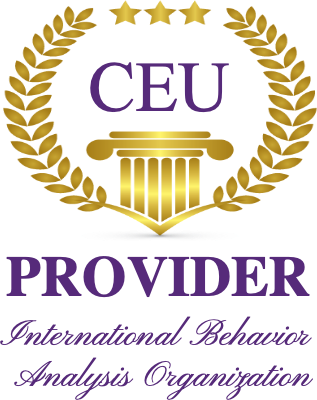
Pyramid Educational Consultants is an approved International Behavior Analysis Organization (IBAO) for ABA Topic Continuing Education Credits. This virtual conference offers 6.0 IBAO ABA Topic CEUs.
Keynote Speakers
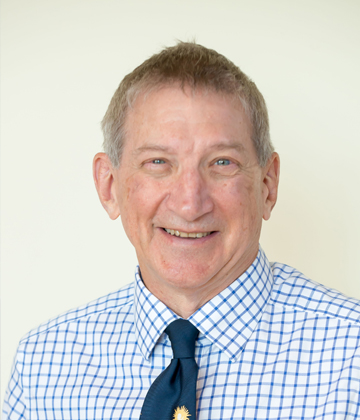
Andy Bondy, PhD
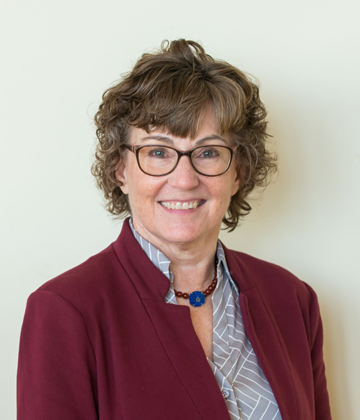
Lori Frost, MS, CCC-SLP
Invited Speakers

Armando Bernal, MEd, BCBA

Peter Gerhardt, EdD
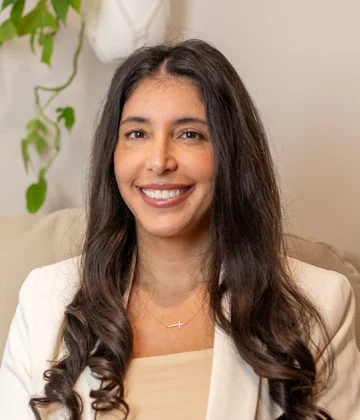
Shanna Bahry, PhD, BCBA-D
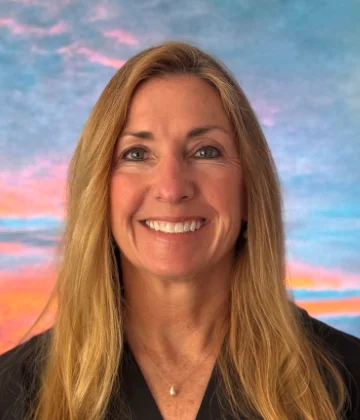
Vivian Bush, PhD, NCSP
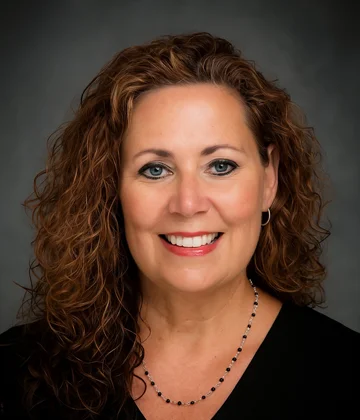
Pam Graves MEd
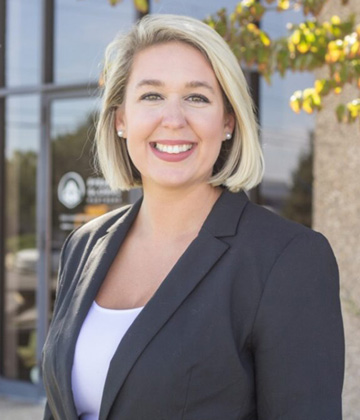
Molly Lingo, MEd, BCBA
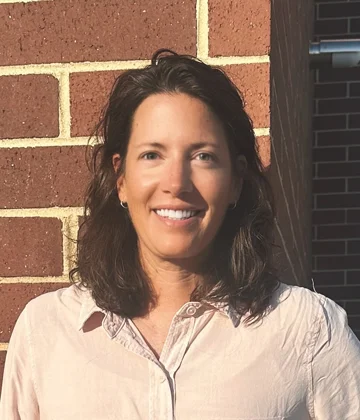
Pam Willmot MEd, CAGS
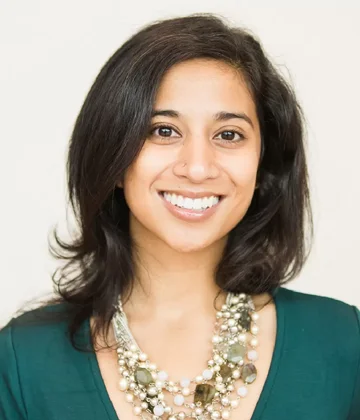
Noor Syed PhD, BCBA-D, LBA/LBS
